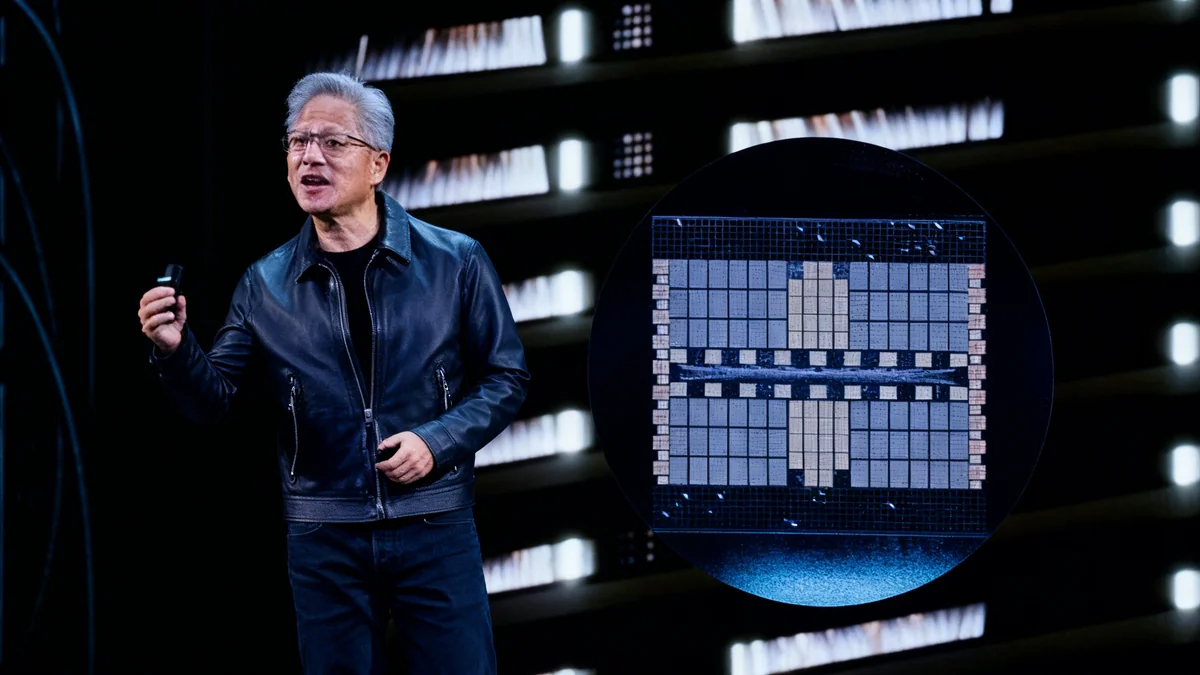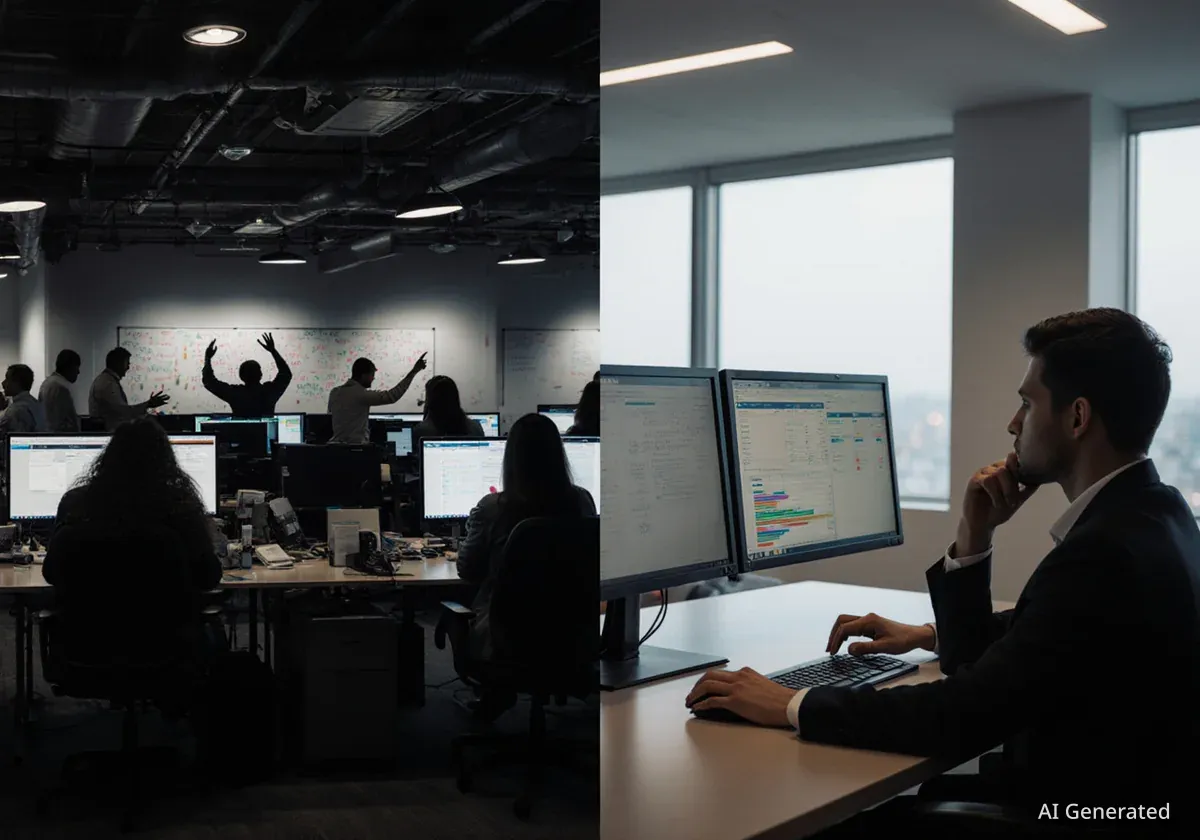Amazon representatives are engaging with global leaders at the 80th United Nations General Assembly (UNGA) to discuss the company's key technology initiatives. The discussions focus on the development of responsible artificial intelligence and the expansion of global internet access through its satellite program, Project Kuiper.
Key Takeaways
- Amazon is participating in high-level discussions at the UNGA, outlining its strategy for artificial intelligence and global connectivity.
- The company's approach to AI emphasizes responsible development, aiming to make advanced technology accessible while enhancing human capabilities.
- Project Kuiper, Amazon's satellite internet initiative, is presented as a primary tool to help close the global digital divide for underserved communities.
- Amazon stresses the need for collaboration between corporations, governments, and civil society to manage technological advancements effectively.
Amazon's Agenda at the United Nations
At a pivotal moment for global policy, Amazon has joined discussions at the 80th United Nations General Assembly in New York. The company is presenting its vision for how large-scale technology projects can address significant global challenges, including economic disparity and access to information.
The core topics of Amazon's engagement are its advancements in artificial intelligence and its ambitious Project Kuiper. Company representatives are meeting with policymakers and world leaders to discuss governance, responsible innovation, and the potential for public-private partnerships to drive progress on a global scale.
What is the UN General Assembly?
The UN General Assembly is one of the six principal organs of the United Nations and serves as the main deliberative, policymaking, and representative organ. It provides a unique forum for multilateral discussion of the full spectrum of international issues covered by the UN Charter. The presence of major technology companies like Amazon highlights the growing intersection of technology and global policy.
Amazon's participation underscores a broader trend of tech corporations playing a more active role in international development and policy discussions. The company's message centers on harnessing technology for widespread positive impact while addressing potential risks through careful planning and collaboration.
Project Kuiper to Address the Digital Divide
A significant focus of Amazon's presentation at the UNGA is Project Kuiper. This initiative is designed to build a constellation of satellites in low Earth orbit to deliver high-speed, low-latency broadband internet to communities worldwide that currently lack reliable access.
Amazon's stated goal for Project Kuiper is to help close the persistent global digital divide. By providing affordable and dependable internet service, the company aims to unlock new economic and educational opportunities for billions of people. Access to the internet is increasingly seen as essential for participation in the modern economy, education, and healthcare.
The Global Digital Divide by the Numbers
According to the International Telecommunication Union (ITU), the UN's specialized agency for information and communication technologies, an estimated 2.6 billion people remained offline in 2023. This connectivity gap disproportionately affects developing nations and rural areas, limiting access to critical services and information.
Representatives explained that Project Kuiper is not just about connectivity but also about empowerment. The infrastructure is intended to enable individuals and communities to access global markets, exchange knowledge, and utilize digital services that were previously out of reach.
"Connectivity is a way to participate in the modern economy, access services, and exchange knowledge and culture with the world," an Amazon spokesperson stated, highlighting the project's broader mission beyond technical implementation.
The project involves launching thousands of satellites into space, a complex and capital-intensive undertaking. Amazon's discussions at the UN likely involve coordinating with international bodies on spectrum allocation, space debris mitigation, and ensuring the service can be deployed effectively in various regulatory environments.
A Strategy for Responsible Artificial Intelligence
Alongside connectivity, Amazon is detailing its approach to the development and deployment of artificial intelligence. The company emphasizes a commitment to building AI that is both responsible and inclusive, with a design philosophy centered on augmenting human potential rather than replacing it.
Amazon's AI strategy focuses on several key principles:
- Democratization of Technology: Creating AI tools that are accessible to small businesses, researchers, and organizations without the vast resources of large corporations.
- Enhancing Human Capabilities: Developing AI to assist with complex tasks, from optimizing business operations to accelerating scientific research and discovery.
- Preventing Misuse: Recognizing the critical importance of safeguards to prevent both the missed use of beneficial AI and the misuse of the technology for harmful purposes.
The company acknowledges the public and governmental concerns surrounding the rapid advancement of AI. By engaging directly with policymakers at the UN, Amazon aims to contribute to the global conversation on AI governance and ethical guidelines. This includes discussions on transparency, fairness, and accountability in AI systems.
The goal is to foster an environment where innovation can thrive while potential harms are proactively minimized. This requires a balanced approach that encourages development but establishes clear boundaries for deployment, especially in sensitive areas.
A Call for Global Collaboration
A recurring theme in Amazon's messaging at the UNGA is the necessity of cross-sector collaboration. The company states that no single entity, whether corporate or governmental, can solve complex global challenges alone. This position advocates for a united front involving private companies, the United Nations, national governments, and civil society organizations.
This collaborative framework is essential for both Project Kuiper and its AI initiatives. For satellite internet, international agreements are necessary for orbital paths and landing rights for ground station signals. For AI, global standards and ethical norms are needed to ensure the technology benefits humanity broadly.
By working together, Amazon believes these powerful technologies can be guided toward creating a more sustainable and equitable future. The discussions at the UNGA represent an important step in building the consensus needed to achieve these ambitious goals.
The outcomes of these conversations are expected to shape how technology is integrated into global development strategies in the coming years. Amazon has committed to sharing further insights as the discussions progress throughout the week.





